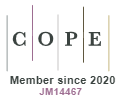Evaluation of solid waste management in the Municipality of Guarujá - SP:
a performance analysis between the years 2017 and 2021
DOI:
https://doi.org/10.5585/2023.25355Keywords:
Solid Waste, Municipal Management, Integrated management, Municipality of GuarujaAbstract
Objective: The evaluation of solid waste management in a municipality is a powerful tool for assessing the efficiency of implemented projects and the execution of activities carried out by managers and other stakeholders. In this regard, this study analyzed the actions of the Municipal Government of Guarujá between the years 2017 and 2021, according to the Regional Plan for Integrated Solid Waste Management of Santos Area Lowlands. Methodology: The present research was conducted using a qualitative approach through document analysis. Information was collected directly from the Department of Environment (SEMAM) and the Department of Urban Services (SEURB) of the Guarujá Municipality. The collected data were analyzed in accordance with the selected bibliographic references and concerning the conclusions drawn for each identified action. Originality/Relevance: This research proposes an innovative approach in studying solid waste management in Guarujá, with a focus on the Regional Plan. Emphasis is given to the importance of integrated management, as well as the need to review the strategies adopted by the municipality, providing an original perspective on the matter. Key Findings: The main results of this study are the significant advancements made by the municipality of Guarujá about planning and implementing public policies to enable solid waste management within its territory. Contributions: Moreover this study points flaws in current legislation and emphasizes the importance of creating Regionalized Solid Waste Units to ensure the effectiveness of regional plans. Consequently, the findings obtained from this research constitute scientific contributions aimed at driving the implementation of more effective and sustainable public policies in the field of solid waste management.
Downloads
References
Adedara, M. L., Taiwo, R., & Bork, H.-R. (11 de apr de 2023). Municipal Solid Waste Collection and Coverage Rates in Sub-Saharan African Countries: A Comprehensive Systematic Review and Meta-Analysis. Waste, 1(2), pp. 389-413. doi:https://doi.org/10.3390/waste1020024
Alfaia, R. G., Costa, A. M., & Campos, J. C. (2017). Municipal solid waste in Brazil: A review. Waste Management & Research, 35(12), 1195–1209. doi:https://doi.org/10.1177/0734242X17735375
Aranha, S. (2020). Governança Ambiental: A atuação do COMDEMA com órgão mediador de conflitos ambientais no municipio de Guarujá-SP (1 ed., Vol. 1). São Paulo: Dissertação de Mestrado. Fonte: https://drive.google.com/file/d/1YyIhkWECpMk4yxmKx-8_xhNc8Py_-P7-/view
Benedicto, S. C., Filho, C. F., Georges, M. R., & Ferrari, V. E. (23 de nov de 2020). Sustentabilidade: um fenômeno multifacetário que requer um diálogo interdisciplinar. Sustentabilidade: Diálogos Interdisciplinares, pp. 1-21. doi:https://doi.org/10.24220/2675-7885v1e2020a5168
Besen, G. R., Ribeiro, H., Fracalanza, A. P., Jacobi, P. R., & Gunther, W. M. (2021). Plataforma digital de autoavaliação e monitoramento da coleta seletiva municipal, Brasil. Revista Tecnologia e Sociedade, 17(47), pp. 121-140. doi:10.3895/rts.v17n47.11831
Braga, A. F., & Ribeiro, H. (31 de mai de 2021). Coleta seletiva na Cidade do Cabo: que lições podemos tirar? Re vista Tecnologia e Sociedade, pp. 163-184. doi:10.3895/rts.v17n48.12210
Brasil. (2010). Decreto nº 7.404, de 23 de dezembro de 2010. Regulamenta a Lei nº 12.305, de 2 de agosto de 2010, que institui a Política Nacional de Resíduos Sólidos, cria o Comitê Interministerial da Política Nacional de Resíduos Sólidos e o Comitê Orientador para a Implantação dos Sistemas de Logística Reversa, : Diário Oficial da UNião.
Brasil. (2010). Lei nº 12.305, de 02 de agosto de 2010. Institui a Política Nacional de Resíduos Sólidos; altera a Lei nº 9.605, de 12 de fevereiro de 1998; e dá outras providências. Brasiília D.F. : Diário Oficial da União.
Correa, F. A., Sguarezi, S. B., & Melo, S. A. (12 de jun de 2022). Performance Of The Public Prosecutor In The Recycling Of Solid Urban Waste: A Literature Review. Revista de Gestão Social e Ambiental, pp. 1-15. doi:https://doi.org/10.24857/rgsa.v16n2-006
Ferraz, J. L. (2008). Modelo para avaliação da gestão municipal integrada de resíduos sólidos urbanos (1 ed., Vol. 1). Campinas: Unicamp - Tese de Doutorado.
Guo, W., Xi, B., Huang, C., Li, j., Tang, Z., Li, W., . . . Wu, W. (17 de jun de 2021). Solid waste management in China: Policy and driving factors in 2004–2019. Resources, Conservation & Recycling, pp. 1-17. doi:10.1016/j.resconrec.2021.105727
IBGE. (2010). Instituto Brasileiro de geografia e Estatistica - IBGE Cidades. Brasilia: IBGE.
IBGE. (2022). Instituto Brasileiro de Geografia e Estatística - IBGE Cidades. Brasília: IBGE.
IPT. (2018). Plano Regional de Gestã Integrada da Baixada Santista. Santos: Instituto de Pesquisas Tecnológicas.
Jacobi, P. (2000). Politicas sociais e ampliação da cidadania. In: Politicas sociais e ampliação da cidadania. doi:https://doi.org/10.1590/1809-4422ASOCeditorialV1832015
Jacobi, P. R., & Giatti, L. L. (jul/set de 2015). A ambivalência do desenvolvimento e a busca de novas vias para a sustentabilidade. Ambiente & Sociedade, 18(3), 1-6.
Kaza, S., Yao, L. C., Bhada-Tata, P., & Van Woerden, F. (2018). A Global Snapshot of Solid Waste Management to 2050. Urban Development. Fonte: http://hdl.handle.net/10986/30317
Khan, A. H., López-Maldonado, E. A., Alam, S. S., Khan, N. A., López, J. R., Herrera, P. F., . . . Singh, L. (1 de sep de 2022). Municipal solid waste generation and the current state of waste-to-energy potential: State of art review. Energy Conversion and Management, 267. doi:10.1016/j.enconman.2022.115905
Khandelwal, H., Dhar, H., Thalla, A. K., & Kumar, S. (2019). Application of life cycle assessment in municipal solid waste management: A worldwide critical review. Journal of cleaner production, pp. 630-654. doi:https://doi.org/10.1016/j.jclepro.2018.10.233
Kuss, A. V., Carlan, F. d., Behling, G. M., & Gil, R. L. (2015). Possibilidades Metodológicas para Pesquisa em Educação ambiental (1 ed., Vol. 1). Pelotas: Santa Cruz.
Mondal, S., & Mandal, B. (2023). Assessment of urban solid waste management in a Class II Indian city using geospatial and statistical approaches: A case study of Rampurhat municipality. Waste Management Bulletin, pp. 74-92. doi:10.1016/j.wmb.2023.09.003
Novais, A. F. (2023). A europeização das políticas públicas ambientais: implicações para a gestão de resíduos sólidos urbanos nas autarquias locais. Braga: Dissertação de mestrado. Universidade do Minho. Escola de Economia e Gestão.
Oliveira, C. A., & Silva, E. d. (2023). Gestão pública: diálogos interdisciplinares. São Paulo: Oimenta Cultural. doi:10.31560/pimentacultural/2023.96115
Picchiai, D., & Senigalia, F. (jun de 2019). Gestão de Resíduos Sólidos Integrada às Responsabilidades das Micro e Pequenas Empresas e do Poder Público Municipal. Desenvolvimento em Questão, 17(49), 112-135. doi:https://doi.org/10.21527/2237-6453.2019.49.112-135
PM-Guarujá. (2012). Fórum Permanente Agenda 21. Guarujá: PM-Guarujá. Fonte: https://guaruja.s3.amazonaws.com/livroagenda21guaruja2034-140901140323-phpapp01.pdf
PM-Guarujá. (2012). Plano Municipal de Gestão Integrada de Resíduos Sólidos de Guarujá. Guarujá. Acesso em 11 de Ago de 2022, disponível em http://arquivo.ambiente.sp.gov.br/cpla/2017/05/guaruja.pdf
PM-GUARUJÁ. (2016). Plano Municipal de Gestão Integrada de Resíduos Sólidos do Guarujá, São Paulo (2 ed., Vol. 1). Guarujá.
PM-Guarujá. (2019). 1a Revisão Agenda 21 (212-2018). Guarujá. Fonte: https://d18xl8ggo6ud4h.cloudfront.net/wp-content/uploads/2022/06/CADERNO-DE-REVISAO-DA-AGENDA-21-2018_2019.pdf
Rabinovici, A., Barros-Freire, J. M., Goldberg, R., & Neiman, Z. (2021). Leitura dos ODS para um Brasil Sustentável. Diadema: V&V. doi:https://doi.org/10.47247/VV/AR/88471.17.3
Saidón, M., & Verrastro, E. (Jul-Dec de 2017). Residuos Sólidos Urbanos y nuevas políticas en el territorio metropolitano de Buenos Aires: 2002-2015. Estudios Socioterritoriales, pp. 65-83.
Seixas, C. S., Prado, D. S., Joly, C. A., May, P. H., Neves, E. M., & Teixeira, L. R. (2020). Governança ambiental no Brasil: rumo aos objetivos do desenvolvimento sustentável (ODS)? Cadernos Gestão Pública e Cidadania, 25(81), 1-21. doi:https://doi.org/10.12660/cgpc.v25n81.81404
SEMAM-GUARUJÁ. (2022). Relatório de Gestão. Guarujá: PM-Guarujá. Acesso em 04 de Jul de 2022, disponível em https://www.guaruja.sp.gov.br/relatorios-de-gestao/
SEMAM-GUARUJÁ. (2022). Secretaria de Meio Ambiente de Guarujá. Guarujá.
Siman, R. R., Yamane, L. H., Baldam, R. d., Tackla, J. P., Lessa, S. F., & Britto, P. M. (30 de jan de 2020). Governance tools: Improving the circular economy through the promotion of the economic sustainability of waste picker organizations. Waste Management. doi:10.1016/j.wasman.2020.01.040
Thorstensen, V., Rebouças Mota, C., Arima Júnior, M. K., Thomazella, F. J., & Mitsui Zuchieri, A. (8 de 12 de 2022). Vanguardismo ambiental e protecionismo comercial na União Europeia e nos Estados Unidos. Comisión Económica para América Latina y el Caribe, pp. 6-48. doi:10.38116/td2724
Tranfield, D., Denyer, D., & Smart, P. (2003). Towards a Methodology for Developing Evidence-Informed Management Knowledge by Means of Systematic Review. British Journal of Management, 14(3), 207-222. doi:10.1111/1467-8551.00375
UNESCO. (2023). The United Nations World Water Development Report 2023: Partnerships and cooperation for water. Paris: United Nations Educational, Scientific and Cultural Organization.
Yamane, L. H., Dutra, R. M., & Siman, R. R. (24 de feb de 2023). Assessment and Perception of Occupational Risks n Waste Picker Organizations: A Portrait Of Waste Pickers Situation After Formal Integration. Detritus Multidiciplinary Journal for Waste Rsource & Residues, pp. 13-26. doi:10.31025/2611-4135/2023.17253
Yin, R. K. (2010). Estudo de caso: planejamento e métodos (4 ed.). Porto Alegre: Bookman.
Downloads
Published
How to Cite
Issue
Section
License
Copyright (c) 2023 Autores

This work is licensed under a Creative Commons Attribution-NonCommercial-ShareAlike 4.0 International License.









